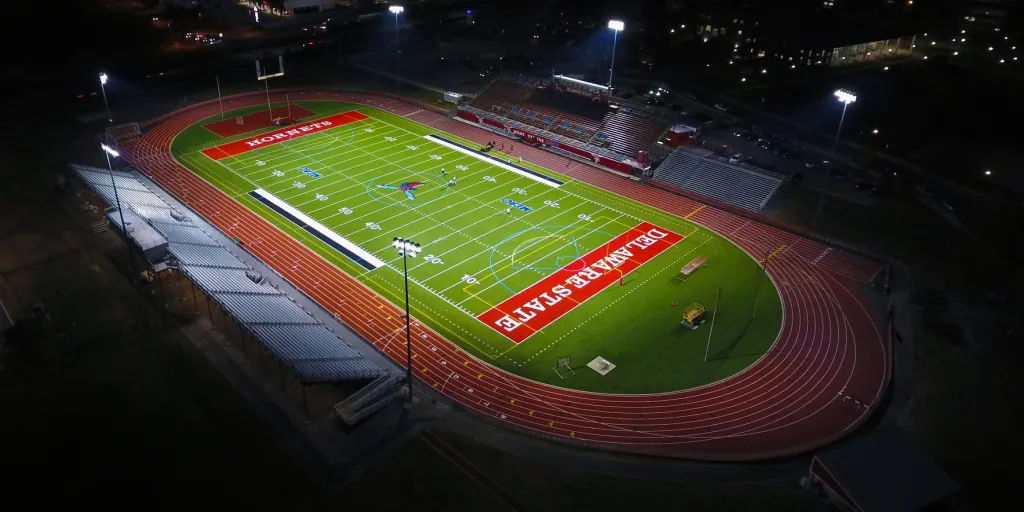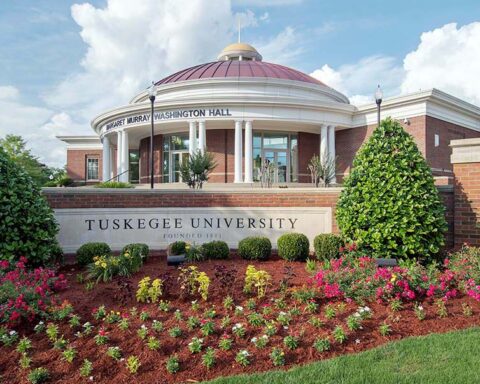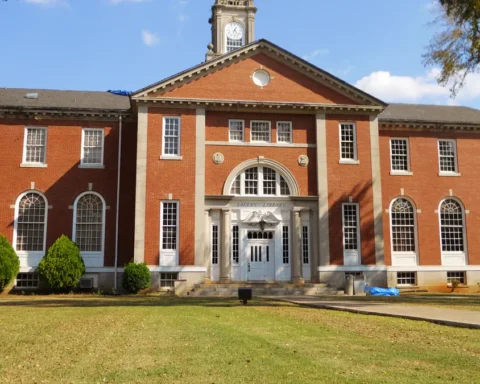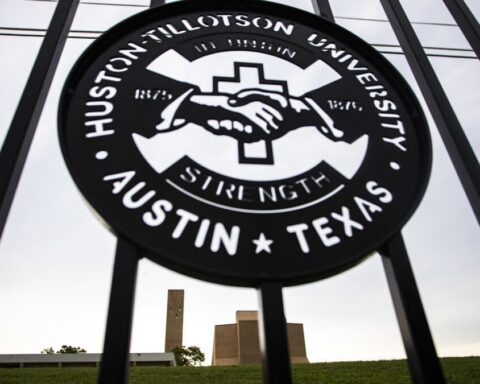Delaware State University recently presented a three-part proposal requesting the state provide $125 million over several years to help the HBCU improve its athletic facilities.
DSU president Tony Allen believes the state’s aid will increase the visibility and competitive spirit of the university’s athletics despite the Donald Trump administration’s sweeping efforts across the nation to slash federal education programs. Allen also said today’s college athletics landscape plays a significant role in raising a university’s profile.
“It’s a new era for DSU Athletics,” Allen said, per WDEL 1150AM in Wilmington, Delaware. “People ask me all the time ‘why should we be focused on athletics?’ It’s because it’s the front porch of the university.”
Marquee Coaches
When Allen suggested his plan in the Capital Improvement Committee Budget hearing, it called for a university bond bill for $25 million this year to build an indoor field house as the first of the three-way plan. The facility would include offices for coaches, football locker rooms and a 50-yard turf field with hopes of helping DSU recruit better players to its programs after the university made marquee coaching hires in acquiring former NFL wide receiver DeSean Jackson — the Hornets football coach — and former three-year outfielder MLB Pedro Swann, who serves as baseball coach at the HBCU.
While Jackson — who was hired by DSU on Dec. 27 — has recruited solid players, the longtime Philadelphia Eagles wide receiver said the recruiting process has been difficult due to the team’s lacking facility infrastructure.
“It’s kind of shaming to be able to be in a position where you’re at a Division I school and I can’t brag about our facilities,” Jackson said, per WDEL.
Delaware State University plans to construct the field house using the $25 million in bond bill money as well as through other donations to the university. The second phase of the plan seeks to renovate Alumni Stadium and the DSU Downtown/Wesley athletic facilities. The university’s satellite branch in downtown Dover plans to request $10 million in state aid for the renovations, according to WDEL.
Currently, the Hornets play their baseball games at Bob Reed Field. DSU previously hosted its games at its baseball complex. However, the Hornets elected to move away from playing games at their complex to hold games at Wesley — former home of Division III Wesley College that is now DSU Downtown and allowing the HBCU to build a new agriculture building where its complex existed.
Swann, who is in his first season at DSU, said the HBCU baseball field is “way below standards.”
“Our kids work hard every day trying to maintain the field and make the best of what we have,” Swann said, per WDEL. “It’s disheartening every time we go on the road and just see how much better the facility can be when we play amongst our peers.”
The final phase of the proposal includes a state-of-the-art convocation center, combining an indoor arena and conference space in one venue, similar to what is in place inside the Bob Carpenter Center at the University of Delaware. However, if approved, the third phase would not begin until 2027 at the earliest.
DOGE Delay
While several of the state’s lawmakers voiced that DSU has been abandoned and that Dover needs better facilities to become a sports town, state Rep. Debra Heffernan (D-Bellefonte) — the bond committee’s vice chair — said the timing of DSU’s plan is a “year or two” behind due to the effects of the Department of Government Efficiency (DOGE).
“I caution that our financial landscape for Bond (Bill) has, at least at this point, does not look as promising as it had for a couple of years previously,” Heffernan said, per WDEL. “So that’s unfortunate that the [DSU] request doesn’t come at a time when we have extra money to invest in these excellent projects.”
Budget restraints led Delaware Gov. Matt Mayer to decrease his funding for DSU’s capital improvements from $20 million—the initial amount under former Gov. John Carey—to $14 million.
Even though the bond committee concluded its budget hearings this week, the committee plans to settle on which programs will receive money before June 30.





